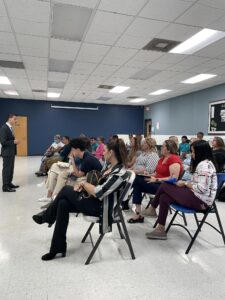April 25, 2020
Michael Salad, Esq. | Craig Panholzer, Esq.
The coronavirus (“COVID-19”) pandemic has prevented businesses around the world from operating and fulfilling contractual obligations. Governments across the globe imposed unprecedented travel, movement, and large-gathering restrictions. Many states within the United States prohibited dine-in service at restaurants and shuttered public schools. Businesses of all sizes began locking their doors after widespread mandatory shut-downs.
As economic uncertainty increases, businesses and individuals are exploring their contractual options, including exercising force majeure provisions. “Force majeure” is French for “superior force,” which is an event or effect that cannot be anticipated or controlled. The term commonly encompasses acts of God or nature, such as floods, hurricanes, and acts of man, such as riots, strikes, and wars. Due to their frequency and devastating effects, Florida has historically acknowledged hurricanes as force majeure events. See Florida Power Corp. v. Tallahassee, 18 So. 2d 671, 675 (Fla. 1944) (holding that a hurricane was an act of God that prevented performance of the terms of a contract). However, force majeure provisions are not solely reserved for hurricanes. A force majeure event may include an event or occurrence beyond the control of the parties to a contract that creates substantial delay and difficulty in completing the terms of the contract. Invoking a force majeure provision can halt or cancel a contract. Many business owners contend that government-imposed lockdowns are causing contractual obligations to be impossible to perform.
Impossibility of performance is a defense to nonperformance and applies to situations where the purpose for which the contract was made has become impossible to perform. Spring Lake NC, LLC v. Figueroa, 104 So. 3d 1211, 1216 (Fla. 2d DCA 2012). In determining impossibility, courts assess whether an unanticipated circumstance has made performance of the promise vitally different from what should reasonably have been within the contemplation of both parties when they entered into the contract. Ferguson v. Ferguson, 54 So. 3d 553, 556 (Fla. 3d DCA 2011). If the risk was foreseeable when the agreement was made and could have been expressly addressed in the agreement, the doctrine of impossibility of performance is cautiously employed by courts. Am. Aviation, Inc. v. Aero-Flight Serv., Inc., 712 So. 2d 809, 810 (Fla. 4th DCA 1998).
An impossibility defense is not permitted if a party had knowledge of the event that created the delay and the event could have been addressed in the agreement. It is presumed that if the information regarding the event that created the delay was available and no provision was added to the agreement to address it, the risk was assumed. In addition, the defense of impossibility of performance cannot be raised if the impossibility could have been avoided or was foreseeable. A pandemic like COVID-19 will not likely be deemed a foreseeable event.
The COVID-19 pandemic may trigger a force majeure provision if the provision references “pandemics.” However, if a force majeure clause does not reference pandemics, a pandemic will not necessarily trigger a force majeure provision. The applicability of a force majeure provision is contract-specific. Florida law provides that an ambiguity in contractual language will be interpreted against the party who selected that language. Consolidated Development & Engineering Corp. v. Ortega Co., 158 So. 94, 96 (1934). A party is bound by the language that it adopts in an agreement, irrespective how disadvantageous that language later proves to be. Kel Homes, LLC v. Burris, 933 So. 2d 699, 704 (Fla. 2d DCA 2006).
A Florida court held that a force majeure clause that excuses delays for “any cause … not within the reasonable control of the party” is broad enough to encompass any delaying event beyond the control of a party. St. Joe Paper Co. v. State Dep’t of Envtl. Regulation, 371 So. 2d 178, 180 (Fla. 1st DCA 1979). A force majeure clause that references unusual transportation delays may be invoked by parties seeking to terminate a contract in light of stay-at-home orders prohibiting travel throughout the country.
Continued governmental regulations intended to thwart the COVID-19 outbreak may similarly solidify the classification and rarity of the unique pandemic and allow a party to successfully invoke a force majeure clause. As a result, companies and individuals should explore all economic options available at the state and federal level and appreciate the potential impact of COVID-19 on contractual performance and its overall effect on business operations.
As stay-at-home orders and other executive action evolve, it is critical that companies and individuals proactively assess the terms and conditions of their contractual obligations. Contractual language, such as force majeure provisions, are often meticulous, complex and daunting.
If you require assistance in contractual interpretation or if you wish to learn about programs available under the CARES Act, such as the Paycheck Protection Program, state relief programs or if you have other business-related inquiries, please contact Michael Salad via e-mail at msalad@cooperlevenson.com or direct dial at (954) 889-1850 or Craig Panholzer via e-mail at cpanholzer@cooperlevenson.com or direct dial at (954) 889-1856.
Michael Salad is a partner in Cooper Levenson’s Business & Tax and Cyber Risk Management practice groups. He concentrates his practice on estate planning, business transactions, mergers and acquisitions, tax matters and cyber risk management. Michael holds an LL.M. in Estate Planning and Elder Law. Michael is licensed to practice law in New Jersey, Florida, New York, Pennsylvania, Maryland and the District of Columbia.
Craig Panholzer is an associate in Cooper Levenson’s Business & Tax practice group in its Florida office. He concentrates his practice on business transactions, bankruptcy, estate planning, probate, and tax matters.









